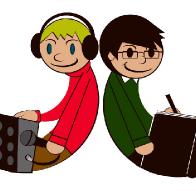Learn from editors, and listen to your own words!
One of our members has asked for more 'tips' about writing. What can I say that is new?
Well... for many specific problems, tips can be found all over the internet. There are hundreds if not thousands of sites with writing advice for all kinds of purposes.
Within the context of our network, which is focussed on research communication, perhaps the most important tip is that writers can learn a lot from good editors, or from people with a good ear for language.
To find a good editor requires some effort.
For example, try making contact with an experienced researcher and writer in your own field (this could be your own supervisor, if you are a lucky graduate student), and then convince them somehow to give attention to your writing plans and efforts. Don't approach such people with trivial work and plans!
Another way is to find someone who is sympathetic to your work or study situation, perhaps because of their own life experience, and who you can easily talk to. To find a willing ear, and being able to easily talk to someone about your work, is often half the battle in a writing project.
Talking can help you to sort out ideas in your own mind, even if the audience does not understand much of what you are saying - and, sometimes, precisely because the audience does not understand much.
Many writers need an audience to stimulate their own thinking.
I often read short pieces of text to my research assistant, who is Japanese, and not a skilled writer of English, but who can understand my work if I explain it clearly enough. In the process, I can hear my own mistakes as well, so there is a double-benefit in reading a text out loud to someone.
Our ears often catch problems that our eyes skip over.
Another way is to invest your own money in your writing experience, and pay for a professional editor who is willing to explain his or her recommendations to you. After doing this for a few papers, and perhaps with more than one editor, you will have a better idea of how to write better drafts in the first place, and reduce the amount of editing needed... the costs should go down as you gain experience.
Please tell us about your own experiences as a writer, editor, or listener.
What works well for you, or what has worked well for others in your experience?


I agree, Peter. There certainly are hundreds if not thousands of sites and blogs offering writing advice. However, I see that as a problem rather than a solution. The number of so-called writing experts online can be overwhelming, and many are certainly not expert.
My advice is to work closely with a professional academic editor. A professional accredited or registered editor who has training and experience in academic editing will not only edit your writing for grammar, punctuation, spelling, consistency, appropriate conventions, and the style required by your university/journal/publisher but also give sound, helpful advice about your writing overall. Such advice could include guidance on appropriate citing methods, referencing and use of footnotes, formatting and quotations, consistency, heading levels, introductions and conclusions, paragraphing, use of tables and figures, repetition, word usage, idioms and formal language.
I advise writers to stick with an editor they are happy with (again, the editor should be accredited or able to prove their professional standing). The writereditor relationship is important. I have some clients I have worked with over a period of years, and Ive taken pleasure and deep satisfaction in observing them develop as academic writers. I always quote lower rates for regular clients, not only because I like to encourage clients but also because, over time,their writing improves under my guidance, andI can thereforework far quicker. A writers work is their creation; the writer needs to be confident that their creation is in the hands of a professional, caring editor who has their client's best interests at heart and who perceives their creation as more than just another editingjob.